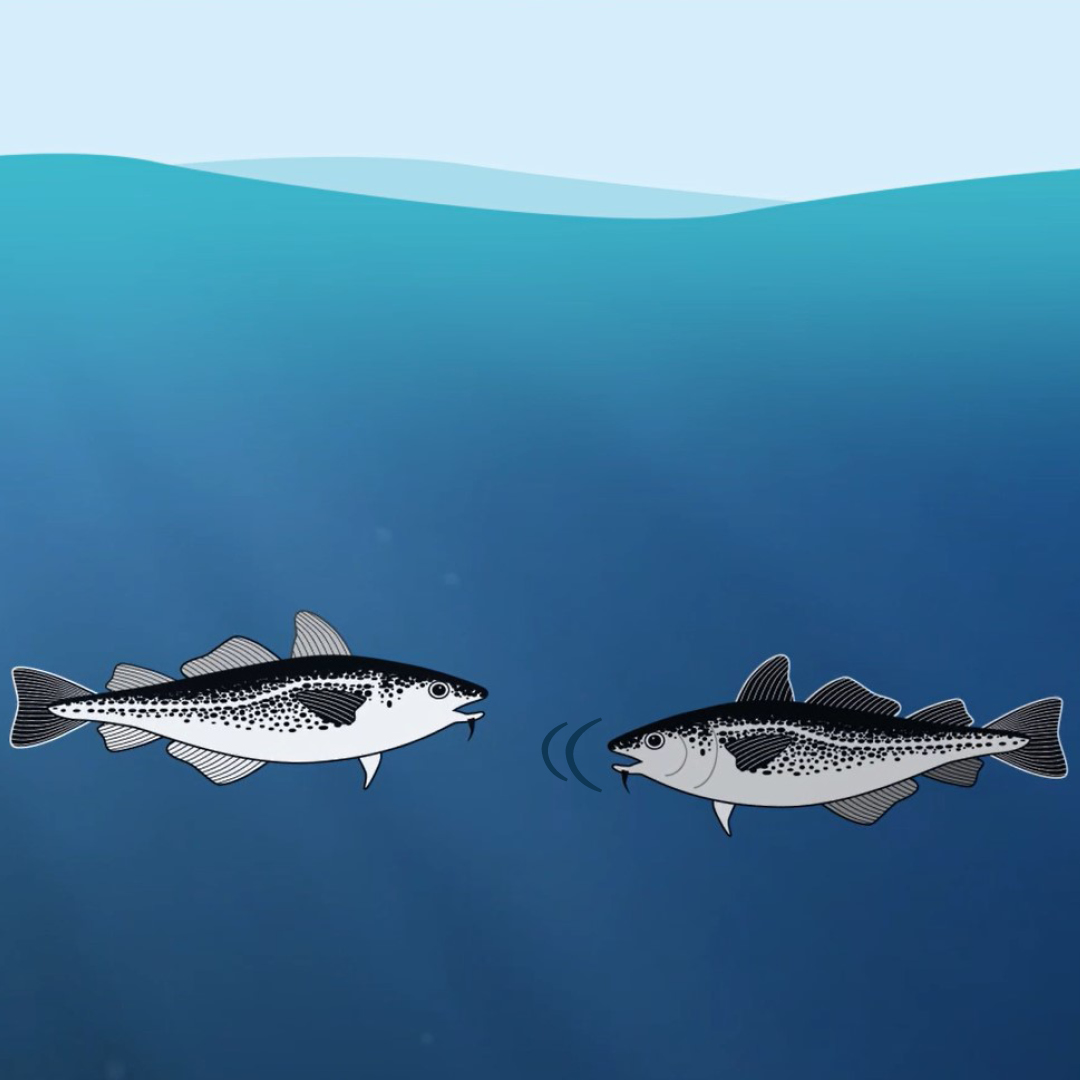The Baltic cod spawns in May-August and now the romance has reached the Ar research station where the project ReCod – release of small cod in the Baltic Sea – is carried out!
“The spawning is in full swing, it’s almost embarrassing”, says Johanna Fröjd, project manager for ReCod, and laughs.
This is the second year that eastern Baltic cod are spawning at the research station. During mating, the female swims after the male in circles as he attracts with his sound and after a while the female swims up to the surface. The male then swims up on the female’s back and slides down beside her. Eventually, the male lies under the female and they place their stomachs close together. Fertilization then occurs when the female releases her eggs and the male releases his sperm.
New this year is the significant increase in the number of incubation units, small pools where fertilized cod eggs are stored until they hatch and are released into the Baltic Sea.
“Last year, such large quantities of fertilized eggs were produced that we had difficulty taking care of them. So this year we have doubled the number of incubation units,” says Johanna.
The goal is to release about 1.5 million cod larvae during the season. And this should not be a problem given the number of eggs produced per day.
“Even though we are only at the beginning of the season, 800,000 eggs are already produced every day,” says Johanna.
The releases take place when the larvae are 4-6 days old, before they have used up their yolk sac but have learned to swim. The first releases are planned for the beginning of June in Tvären, a bay outside Nyköping, where cod used to be found. Now we are keeping our fingers crossed for a continued successful spawning!
The video shows a newly hatched cod larva with a yolk sac. The yolk sac contains all the nutrients the larva needs for the first few days. When the yolk sac is exhausted, the cod larvae start eating zooplankton. Videos: Johanna Fröjd, BalticWaters.

About ReCod
The project is carried out at the Ar research station on Gotland – in the middle of the Baltic Sea. The project conducts trials with cod larvae released to the sea and examine survival rate, their capacity to establish in new locations, and estimate at what cost it can be done. If the measure is successful, it could provide a template for future large-scale efforts to strengthen the stock. ReCod is conducted by BalticWaters in close cooperation with Uppsala University. In addition, there are a number of partners who contribute to the project in various ways: Leader Gute, Region Gotland, Swedish University of Agricultural Sciences and the Ulla and Curt Nicolin Foundation. In total, close to SEK 50 million is invested in the project by the foundation and its partners.
Do you want to read more about ReCod? Read the following articles:
ReCod’s cod released into the Baltic December 2022
New Baltic cod to Ar! November 2022
An intensive, successful year for ReCod September 2022

